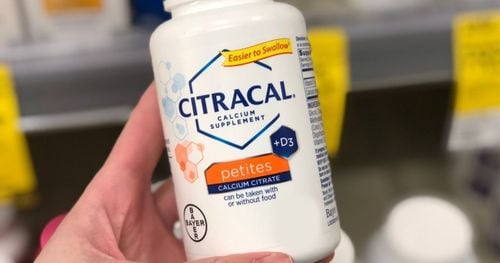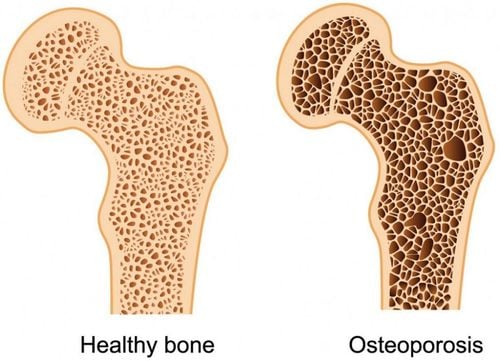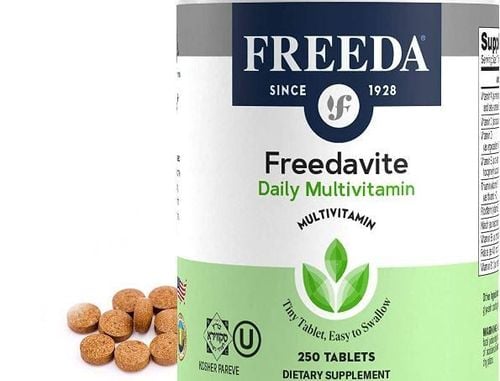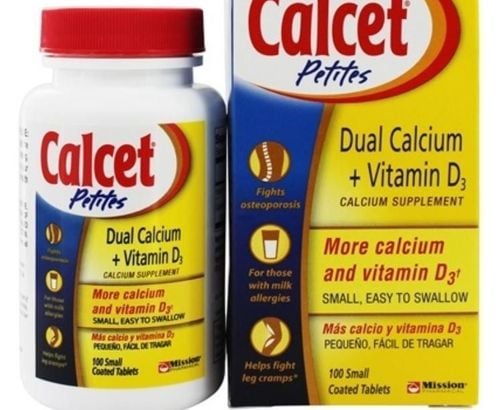This is an automatically translated article.
The article is advised by Master, Doctor Nguyen Thi Nhat - Infectious Diseases - Department of Medical Examination & Internal Medicine - Vinmec Hai Phong International General HospitalIf the body does not have enough calcium and vitamin D to support important functions, the body can then take calcium from the bones. Over time, calcium will be lost, which can increase the risk of osteoporosis. In order to prevent diseases caused by calcium deficiency, the following information will help you have more understanding about this particular substance, and will also help you to choose and supplement to prevent deficiency. calcium for the body.
1. Calcium can be supplemented from vegetables
You already know that drinking milk will help your body grow tall and healthy. Because milk contains a lot of calcium. But with vegetables like Chinese cabbage, kale, collard greens and broccoli are all good sources of calcium. If you don't get enough calcium per day, you may increase your risk of osteoporosis or related diseases that make bones weak.
2. Children while still in the womb can get enough calcium from their mothers
When you are pregnant with a baby, your baby needs calcium to develop the body's skeletal system. Calcium really plays an important role in the last 3 months of pregnancy. If you don't get the recommended amount of calcium, your baby will get what he needs from your bones.
So, eat enough calcium-rich foods while pregnant or breastfeeding. In case, you feel you may have a calcium deficiency, you can see your doctor for advice on choosing natural foods rich in calcium or using supplements to provide calcium to meet your needs. Recommendations for both mother and child.

Canxi có trong sữa mẹ
3. Cut calcium in your diet to prevent kidney diseases
Most kidney stones are formed from a mineral called calcium oxalate. But currently there is no concrete evidence that cutting calcium in the diet will prevent the formation of kidney stones. In fact, when the diet lacks nutrients and drinking too much liquid can make kidney stones more likely. Therefore, it is best to provide enough according to the recommended needs to have the best effect for the development of the body.4. Yogurt contains the highest calcium content
Yogurt contains a higher calcium content than low-fat milk. One cup of plain yogurt will provide 1/3 of your daily calcium requirement. The amount of calcium in yogurt products can vary, so when choosing a product, you must carefully check the nutrition label to make sure that when using yogurt products will provide enough calcium. Recommendations. Orange juice and milk made from almonds, rice and soybeans added to yogurt will make the product better quality. And when using these yogurts, shake well before drinking to avoid calcium settling at the bottom of the box.
Sữa chua có chứa hàm lượng canxi cao
5. Children and teenagers need calcium the most
Children and adolescents grow very quickly and so do their bones. This object needs a lot of calcium. The recommended need is at least 1,300 mg per day. Or this subject needs the recommended amount of calcium per day about two cups of milk, 1 cup of calcium-fortified orange juice and 1 cup of yogurt. Adults need less calcium and the recommended intake is at least 1,000 mg per day.6. Calcium can be lost every day
Almost all calcium is stored in bones and teeth, but you can lose some calcium daily through skin, sweat, hair... The body can't make calcium on its own, so you need to get it. Get calcium from foods and supplements.
Mồ hôi có thể chứa canxi
7. Calcium is good for bones
Calcium is an essential mineral that keeps bones healthy. You may also need it to move muscles and help nerves carry messages between the brain and other parts of the body. In addition, calcium can also help blood vessels move blood to different areas of the body and help release hormones and proteins.8. Vitamin D Absorbs Calcium
These two nutrients support each other to create a strong bone system in the body. The body cannot absorb calcium on its own without vitamin D. And the amount of vitamin D has a high ability to absorb into the body from sunlight sources through direct skin contact. In addition, it is also possible to supplement vitamin D into the body by food sources. But the content of vitamin D in food provides the body with less than the direct absorption of vitamin D by sunlight through the skin.
Vitamin D có từ nguồn ánh sáng mặt trời
9. Calcium supplement
You should take some calcium supplements with your meals, but not all. The two most popular ones are calcium carbonate and calcium citrate. With calcium carbonate costs less but works better when taken with food. As for calcium citrate, it is more expensive, but it can be used with or without food.10. Can't absorb calcium in large doses
You won't do anything yourself if you take calcium supplements in large quantities. Nutrients are more easily absorbed into the body when the intake is limited to 500 mg at a time.
Calcium is good for bones, but to avoid side effects when supplementing with calcium for the body, ask your doctor to know which foods contain a lot of calcium (or calcium-rich foods) as well as foods that are rich in calcium. Supplements can be used to help meet the body's calcium needs.
Reference article source: Webmd.com
SEE MORE:
Calcium should be taken before or after eating? What is the body's calcium requirement? Maternal calcium requirements during pregnancy














